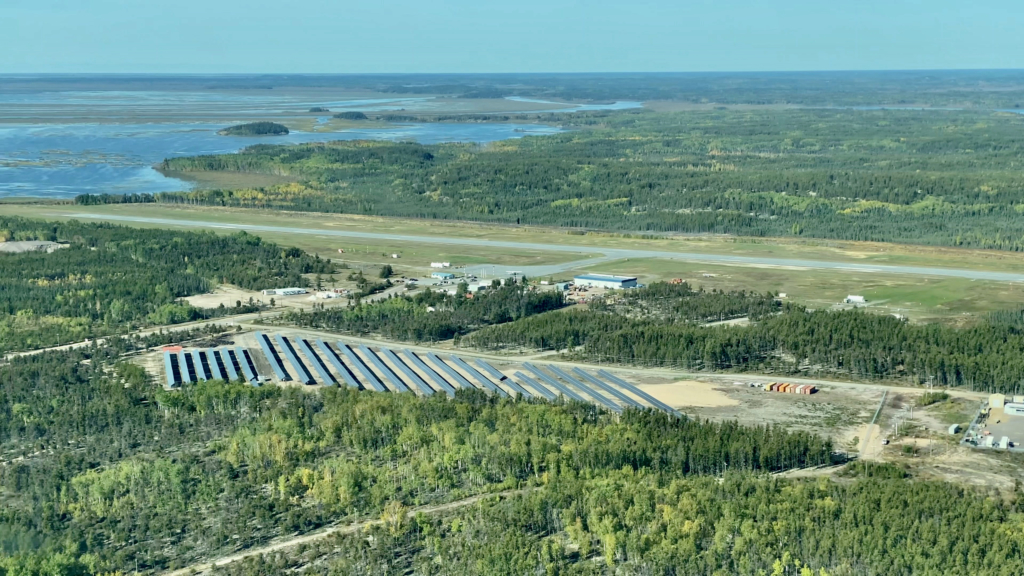
Photo: Aerial view of the Fort Chip Microgrid Project (Courtesy of 3NE).
Fort Chipewyan (Fort Chip), a remote community of 1,000 people, has traditionally relied on diesel generation for its electricity, due to not being connected to the main Alberta power grid. Every year, diesel is transported by trucks on winter roads that are only open for a six-week period. The community was outgrowing the existing diesel tank supply and a sustainable solution was needed. Rather than add more diesel tank storage, ATCO and 3NE installed the largest off-grid solar and storage microgrid project in Canada, reducing the community’s reliance on diesel generation. The project was completed in two phases:
Phase 1:
- 600 kW solar array designed to integrate with the existing diesel generating system. Designed, built, owned and operated by ATCO.
- Phase 1 has been in operation for 1.5 years.
Phase 2:
- 2,200 kW solar farm, owned by 3NE. ATCO was the prime engineering, procurement, and construction (EPC) contactor.
- 1,600 kWh Battery Energy Storage System to store excess energy and provide grid reliability; owned and operated by ATCO.
- Microgrid control system; owned and operated by ATCO.
This outstanding project showcases how industry and Indigenous communities can and should work together to develop alternative renewable energy solutions that benefit communities and the environment. ATCO and 3NE are extremely proud of the collaborative, mutually prosperous relationship that was built to reduce Fort Chip’s overall carbon footprint and advance energy autonomy for the remote community.